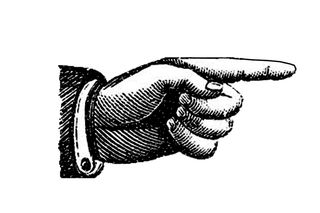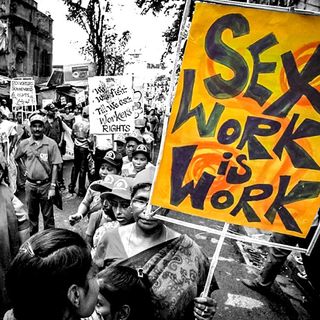
#MeToo Calls for People to #BelieveHer; But 39% of Survey Respondents Believe Some Accusations are Unwarranted.
Does unwarranted mean false? Or does it just mean ambiguous?

One of the biggest calls to action within the #MeToo movement has been to #BelieveHer — to shift the default response to an accusation of sexual misconduct from extending credence to the man, to extending credence to the woman. It’s a shift that is proving difficult to make: 39% of our respondents reported feeling that some #MeToo accusations are false or overreactions.
Possibly as expected, men were nearly twice as likely as women to respond saying they felt at least some of the #MeToo stories were unwarranted (63% versus 35%). (Interestingly, of the respondents who identified as other than male or female, none felt they had heard unwarranted #MeToo stories.)
Beyond the gendered division, the percentage of respondents who believed versus had doubts was remarkably consistent; the respondent’s age, whether they had experienced harassment or assault, whether they knew someone who had been accused of misconduct — none of these factors really affected how prone people were to accepting all versus only some stories at face-value.
The shift in whom to believe is a difficult one to make. Male voices, both figurative and audible, are viewed as more authoritative by society. In many households, fathers have the final word. In business and social settings, lower-pitched voices are considered more leader-like. When men speak passionately, they are forceful; when women speak similarly, they are often called ‘shrill.’ It starts early; decades of research show teacher-student interactions tend to unconsciously reward boys in ways that challenge them to do and say more, and girls in ways that encourage them to be quiet. We are trained, from the earliest moments, to give more weight to the words of men, especially accomplished men, than to the words of women. That near-inherent bias is difficult to overcome; it is what makes us demand two, four, eight, sixteen accusations of sexual misconduct to amass before we take action against a man (if we take action at all).
In the meantime, the one, three, seven, fifteen women who have come before, who may have spoken up in their turn, are out of luck. Their words, both individually and collectively, are not equal to the word of one man. Their bodies, mental health and careers, both individually and collectively, are not equal to those of one man.
And so we look for reasons to write off accusations, and #MeToo offers one, massive reason: that the accusations boil down to how a woman feels in response to an exchange, rather than what a man intended.
Women’s feelings, even more than their voices, get ridiculed and discounted. Hysteria was a legitimate medical diagnosis for ‘what was wrong’ with any dissatisfied, upset or uncomfortable woman as recently as 1980, the assumption being women had no rational reason for being dissatisfied, upset or uncomfortable, but were, in fact, being irrational — woman-like, if you will. #MeToo asks us to leave this shameful inequity behind and accept that women’s feelings are at least as important as men’s intentions.
When viewed through that lens, far fewer accusations become unwarranted; we can’t tell someone how they felt in a situation — only they know that. We can’t tell someone who felt unsafe in a situation that they should have felt safe. And if the public parsing of ‘grey area’ behavior leads us to a clearer collective view of what is acceptable, what is not, and a fuller appreciation for the potential effects of our behavior on others — then isn’t it warranted?
A small but vocal contingent among the survey respondents said they felt some #MeToo stories are “publicity stunts.” This is probably true; any broad movement will attract a few individuals who try to find a platform for themselves, rather than for their experience or their cause. Sadly, this incredibly small minority often speaks the loudest, playing into the very norms the broader movement is trying to break. In doing so, they stir up the most fear, and fear is contagious — what about the men who are falsely accused? What happens to them? (They prove their innocence over a few weeks of discomfort and refutation; their lives are not ruined — as an example of how not-ruined these men’s lives are, Netflix has renewed Varun Grover‘s Sacred Games for a second season.)
What #MeToo is asking us to do is to extend the same concern and credence to the one, three, seven, fifteen women with a story of harassment or assault, that we reserve for the even smaller number of men who are falsely accused. It is asking us to parse the grey areas of human interaction — and grey areas are typically both the most common and the truest:
“Whether the impetus is personal gain, factitious disorder, the need for an alibi, or revenge, it’s crucial to the accuser that their story be taken seriously,” reports Quartz in an investigation of false rape claims. “For this reason, it’s radically unlikely—and in practice does not happen—that a false accuser would invent a story where the issue of consent could seem ambiguous.”
Does unwarranted mean false? Or does it just mean ambiguous?
Since #MeToo has made 50% of survey respondents re-evaluate their definition of consent, it seems safe to say that ambiguity is at the heart of the movement and many of its stories. (This is not to take away from the stories of clear-cut physical assault that many women have shared via the #MeToo movement; they are real and horrifying and should obviously be taken seriously, too.) But ambiguity might just become clearer when we accept that women are not obligated to interpret an action and respond in the way that aligns with a man intentions. If #MeToo can get us to consider the other, overlooked perspective pre-emptively, it may mean fewer accusations seem unwarranted. It may mean fewer accusations, full stop.
Liesl Goecker is The Swaddle's managing editor.
Related


New Revision to Anti‑Trafficking Bill Doesn’t Account for Consensual Sex Work
